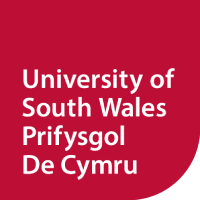About the Project
NEW Deadline: Midnight Sunday 30th October 2016 (Interviews will be held w/c 31st October 2016)
This project provides an excellent opportunity for the successful candidate to use their knowledge of biochemistry, biotechnology or chemical engineering to research and further develop the biomethanation process for energy recovery. The successful candidate would join the Wales AD Centre within the Sustainable Environment Research Centre which was rated as having output (jointly with the Engineering Research Centre) of greater than 75% of internationally excellent or world leading research in the General Engineering REF2014. The project is co-sponsored by Tata Steel which has significant ambitions to develop capabilities in renewable energy generation, energy efficiency improvements, heat and gas recovery.
Production of steel involves heating and cooling raw materials and intermediate products using natural gas sources and atmospheres containing hydrogen. Whilst some work has been conducted in recycling and burning waste hydrogen, the technology is complex. At the same time, extracting chemical energy from CO2 and CO is not developed in industrial applications other than burning combined syngas which has technical challenges.
The development and implementation of a biomethanation process creates a technically credible opportunity to recycle waste gases containing H2, CO2 and CO to methane, which will significantly improve storage and combustion control. The development and implementation of this novel biotechnology at Tata Steel sites would be expected to deliver a significant cost reduction related to energy and a reduction in carbon footprint in steel making. The project will therefore deliver a technical and economic feasibility of the integration of the novel biomethanation process being
developed by USW with a selection of Tata Steels production processes. The biomethanation process is biocatalysed by microbes and is expected to be tolerant of gaseous contaminants, have a low parasitic energy load and be physically compact with a small plant footprint.
Eligibility of Student:
To be eligible to hold a KESS studentship, you must:
- have a home address in the Convergence area* (details below) at the time of registration.
- have the right to take up paid work in the Convergence area* on completion of the scholarship.
- be classified by the University as ‘home’ or ‘EU’ for tuition fees purposes, according to the University’s guidelines.
- satisfy University of South Wales’ admissions criteria: see below
*The Convergence area covers West Wales and the Valleys, and is made up of the following 15 local authorities: Isle of Anglesey, Gwynedd, Conwy, Denbighshire, Ceredigion, Pembrokeshire, Carmarthenshire, Swansea, Neath Port Talbot, Bridgend, Rhondda Cynon Taf, Merthyr Tydfil, Caerphilly, Blaenau Gwent and Torfaen.
Qualifications and experience:
Eligible applicants will have:
- A good first degree (2i or higher) in a relevant science or engineering discipline
- Positive attitude towards practical and applied research
- Must be able to work in a self-directed manner and have the inter-personal skills to interface with the larger research team and the industrial partner
- Good computer and numerical skills
- The ability to be self motivated
- Willingness to travel and work safely in laboratory and industrial settings
The position is available from January 2017.
Funding Notes
The project is funded by the Knowledge Economy Skills Scholarship (KESS) programme and will be based in the Faculty of Computing, Engineering and Science at the University of South Wales. KESS is a programme funded by the European Social Fund (ESF) awarded by the Welsh European Funding Office (WEFO) in the Welsh Government.
The studentship will cover the fees for a 3 year full time PhD programme and pay a stipend of circa £14k p.a. There is also around £3.5k project support costs available for consumables, travel/conference attendance, minor equipment, training (including the KESS Grad School) and conference attendance.

 Continue with Facebook
Continue with Facebook

